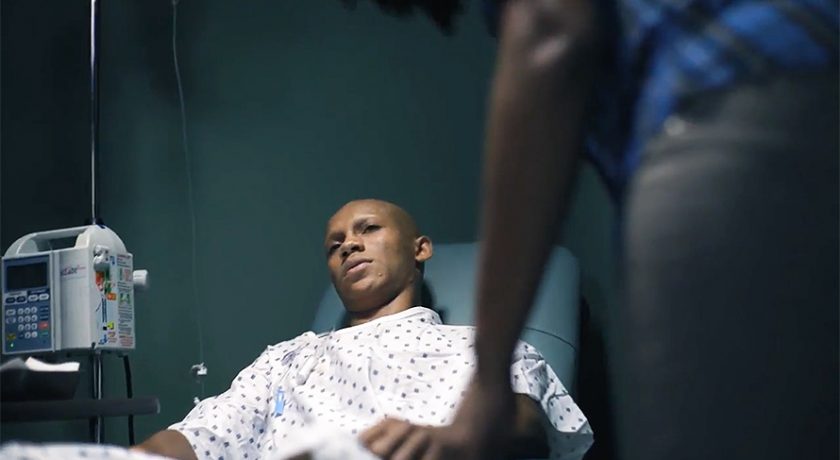Drug overdose is an epidemic in this country. According to the American Society of Addiction Medicine it took the lives of over 52,000 people in 2015 alone. That is five times the size of my home town. We loose so many people to this and yet we do not really talk about it.

Something interesting happened to me this week. I have had three ads for addiction appear over the course of a couple of days, thanks to googling addiction for class. One of these ads was titled Addicts Hear Comments Cancer Patients Never Would. In this video, which I encourage you to watch (click the picture for the link), a mother yells at her son who is going through chemo. She yells a lot of the things that people commonly say to addicts. It was horrible and I considered it to be borderline abusive.
After thinking about it for I while I began to wonder. If I find it abusive and terrible to say to a person with cancer is it any better to say to a person who is addicted? We have been taught since like the first  grade that drugs are bad and to say no to drugs. Yet some how the message that has come across is not just that drugs are bad but that people who take drugs are bad. We learned that doing drugs is a choice and that if you make the wrong choice you are bad. It is not that simple. To understand addiction you must first look at the brain.
grade that drugs are bad and to say no to drugs. Yet some how the message that has come across is not just that drugs are bad but that people who take drugs are bad. We learned that doing drugs is a choice and that if you make the wrong choice you are bad. It is not that simple. To understand addiction you must first look at the brain.
The brain is an amazing organ and it is designed so that we can learn the best way to do things. This is done through a reward system. For us to be able to survive we must learn how to behave. In childhood this could be when we learn something good we are rewarded with praise from our parents or maybe a piece of candy. This reward causes a release of neurotransmitters dopamine and glutamate in the brain. These send signals from one neuron to another and start the formation of the memory. The brain collects the information about the environment at the time of the reward and stores it in a memory. As we associate the action and the reward with the environment we learn how to behave.
This is what happens in addiction. The only difference is that the reward is not triggered by your brain naturally but rather by the substance that is taken. It develops the same type of memories as with a natural reward. Your brain then remembers what that taking the drug was a good experience and compels you to do it the next time. The more you take the drug the stronger the connections between neurons for this memory get and the more you are compelled to seek the drug.
If addicts are compelled to seek the drug is it really a conscious choice and can we really blame them? I don’t really have good answers to this question. But one thing I do know is that far more people will seek treatment if we are able to see addiction as a disease than as a moral fault. People need treatment and that should not come with judgment. If we begin to see addiction as a disease that needs to be cured maybe we can take steps to stop the harm this disease has caused.
The Quiet Epidemic
